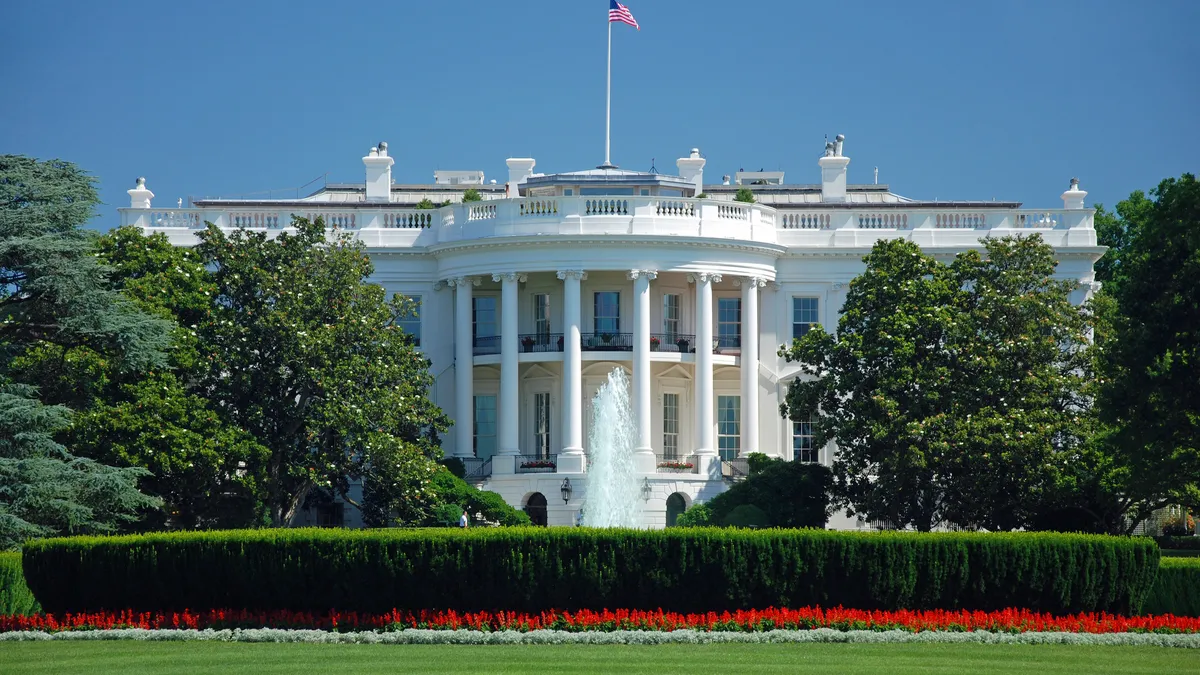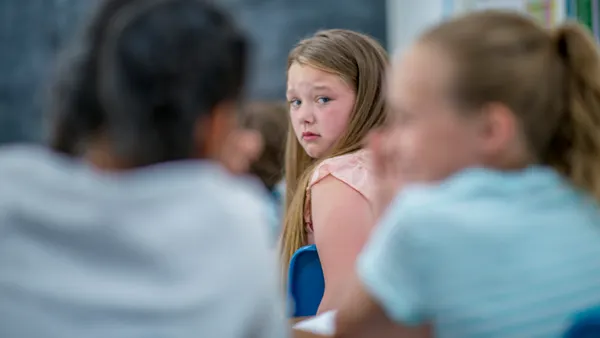Dive Brief:
- Stressing the need for a dedicated pathway to universal school meals and to permanently extend the child tax credit, President Joe Biden shared his national strategy to address hunger, nutrition and health Wednesday morning during a White House conference on the topic – the first in 50 years. Sentiments supporting these policies were echoed by other speakers throughout the conference.
- National leaders like Sen. Mike Braun, R-Indiana, and Sen. Cory Booker, D-New Jersey, called for bipartisanship amid talks to address health, hunger and nutrition in the U.S. “We are seeing such promise and possibility because we have people on both sides of the aisle that feel passionate about these issues,” Booker said.
- Other speakers, including Rep. Jim McGovern, D-Massachusetts, emphasized the value of different government agencies working together on these issues. “The bottom line is we all need to be in the room together,” McGovern said, adding that nonprofits, businesses and faith-based communities have roles to play as well.
Dive Insight:
Calls for bipartisanship and for continuing the pandemic-era policies of child tax credits and universal school meals come at a time when politics have stymied these Biden administration goals.
For instance, the Healthy Meals, Healthy Kids Act, a child nutrition reauthorization bill, cleared the House Committee on Education and Labor in July along partisan lines, with no support from Republican lawmakers. The bill has not yet advanced to a House vote.
The legislation would expand the number of schools that qualify for community eligibility provision, allowing more high-need school districts to serve free meals to all students.
But Republican support has emerged in some areas for state legislation to secure universal school meals programs, Crystal FitzSimons, director of school and out-of-school time programs at the Food Research & Action Center, told K-12 Dive recently.
For the child tax credit, Senate Republicans proposed reviving the policy measure in June. However, that proposal would only give full credit to families earning at least $10,000, and it would fall short in comparison to the 2021 child tax credit expansion from the pandemic-era American Rescue Plan. The Senate plan would push about half of the 2.6 million children it would have lifted out of the poverty line below the line again, because families with low and moderate incomes would have to pay for more than half the cost of the credit expansion, according to an analysis by the Center on Budget and Policy Priorities.
On Wednesday, Biden said during conference opening remarks that the child tax credit helped cut child poverty by nearly 50% and reduced food insecurity among families by 26% during the pandemic.
“We tried. We couldn’t get it done the first time. We’ll get it done this time,” Biden said of efforts to secure a permanent child tax credit.
But to make policies like universal school meals happen, it’s going to take bipartisanship, said Mark Ramos, president of United Food and Commercial Workers International Union Local 1428. Ramos spoke during a panel discussion on ensuring affordable food for all children and families.
“If we could all set down whatever our ‘D’ or ‘R’ is and just focus on the problem, I think that we as a country can really move forward to solve big, big issues,” Ramos said.
Donna Martin, director of school nutrition programs at Burke County Public Schools in Georgia, said in the same panel discussion that universal school meals would provide more time for school food service officials to focus on nutrition education and reduce the stigma regarding school meals. By creating universal school meals, Martin said staff would spend less time trying to collect meal debt from parents.
With universal school meals, "we’d finally have time for nutrition education, which is what we need,” Martin said. “We’d be teaching kids why they need to eat those green, leafy vegetables and those whole grains and they’d be excited about that.”
In another panel discussion, New York City Mayor Eric Adams said the food curriculum in schools should also come through local health departments. “Why is the Department of Health allowing the Department of Education to operate separately?” Adams asked. “We have to think, not outside the box, we have to destroy the box."














